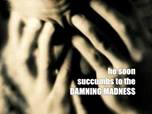Nativeness in English (or lack of thereof) may be an issue when applying for an ESL/EFL teaching position. The credibility of nonnative English-speaking teachers is often challenged on the grounds that they have an "accent" or that they do not look "American," meaning White Anglo-Saxon (Rubin, 1992). This may force such teachers to be confronted with discriminatory hiring practices. Studies show that many administrators in California believe that only native English speakers could be good teachers of ESL (Kamhi-Stein, 1997). It is the responsibility of nonnative English-speaking teachers and educators to address the issue and to present the argument that credibility and competence, while significant matters, are irrelevant to whether the language is native. It is also their responsibility to educate administrators and hiring committees of the many benefits nonnative English-speaking teachers may bring to the classroom. Unlike what many administrators believe, the ideal ESL/EFL teacher is not necessarily a native speaker. Most studies agree on identifying the qualities of a credible teacher. Among the qualifications of a good language teacher most often stressed are training in ESL/EFL pedagogy, an in-depth understanding of the English language and knowledge of the second language acquisition process. Nativeness is not included. (Kamhi-Stein, 1998) In addition to these qualities a good language teacher should possess, nonnative English-speaking teachers enjoy several advantages. They often have an enhanced understanding of the students needs and an ability to predict language problems. In turn, they provide a much-needed skill in designing instructions targeting these areas of language problems. Understanding and, as sometimes is the case, sharing students linguistic and cultural background contribute to positive learning environment. Furthermore, nonnative English-speaking teachers often function as models of successful language learning (Tang, 1997) and can empathize with their students' experiences as second language learners (Lee, 1998). The myth that the ideal ESL teacher must be a native-speaker of English will not disappear on its own. In order to dispel it, both administrators and nonnative English- speaking teachers must take active roles. Administrators need to be active listeners. They ought to listen to the students' comments about their nonnative teachers (studies in this area: Wei, 1998; Lee, 1988, Amin, 1997; Marquez, 1988; Tang, 1997). They also need to evaluate the rate of success nonnative part-time teachers achieve. As for the nonnative teachers, they must continue their steadfastness against all the challenges they face. |
